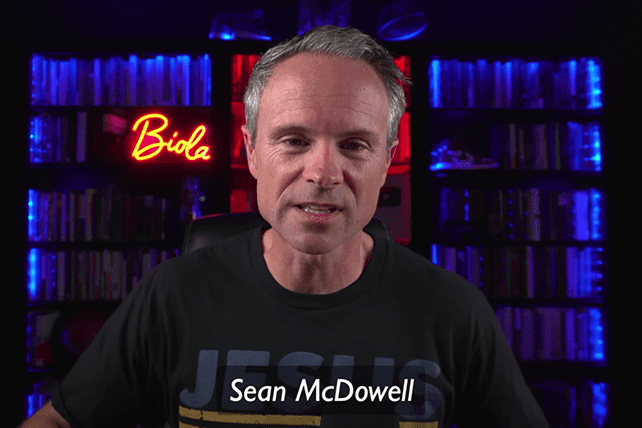McDowell pointed out that dealing with chronic pain significantly depletes a person’s physical and emotional energy and urged compassion towards those who may have “less energy to be patient and loving and caring with other people” as a result of their pain.
RELATED: Sean McDowell: The Gospel in a Post-Christendom World
“The second thing I learned is the importance of letting other people carry your burdens,” McDowell said, adding that he would much prefer to carry the burdens of others than let them carry his. “And what you miss out on is the blessing of grace,” he conceded.
“When you allow people to carry your burdens—spiritually, physically, emotionally—you receive a kind of grace from people, which is just a gift,” he said.
McDowell went on to say that the third lesson he has learned is “no more fear of success.”
“Now, let me explain what I mean about that,” he said. “I think there’s a way we can fear failure and I think we can also fear success…When it comes to success, I’ve seen a lot of Christian leaders fail. I’ve seen them fail relationally. I’ve seen them fail morally. I’ve seen them fail theologically and fail spiritually.”
McDowell expressed that he had been reluctant to develop a public ministry similar to his father’s because he knows firsthand what a burden it can be. However, he said that through his recent experience with pain, he has come to more fully recognize that his health can be gone “in a whisper” and that he wants to spend his time “building God’s kingdom.”
RELATED: Are You ‘Called’ To Be Single? Sean McDowell Shares What the Bible Says
Going on to recount that author Os Guinness once told him that “the idea of legacy is a secular idea,” McDowell said, “I’m not afraid if this [YouTube] channel grows or doesn’t grow. That’s in God’s hands. My desire is to be faithful to what God has called me to do. And there’s a freedom that comes with that.”

